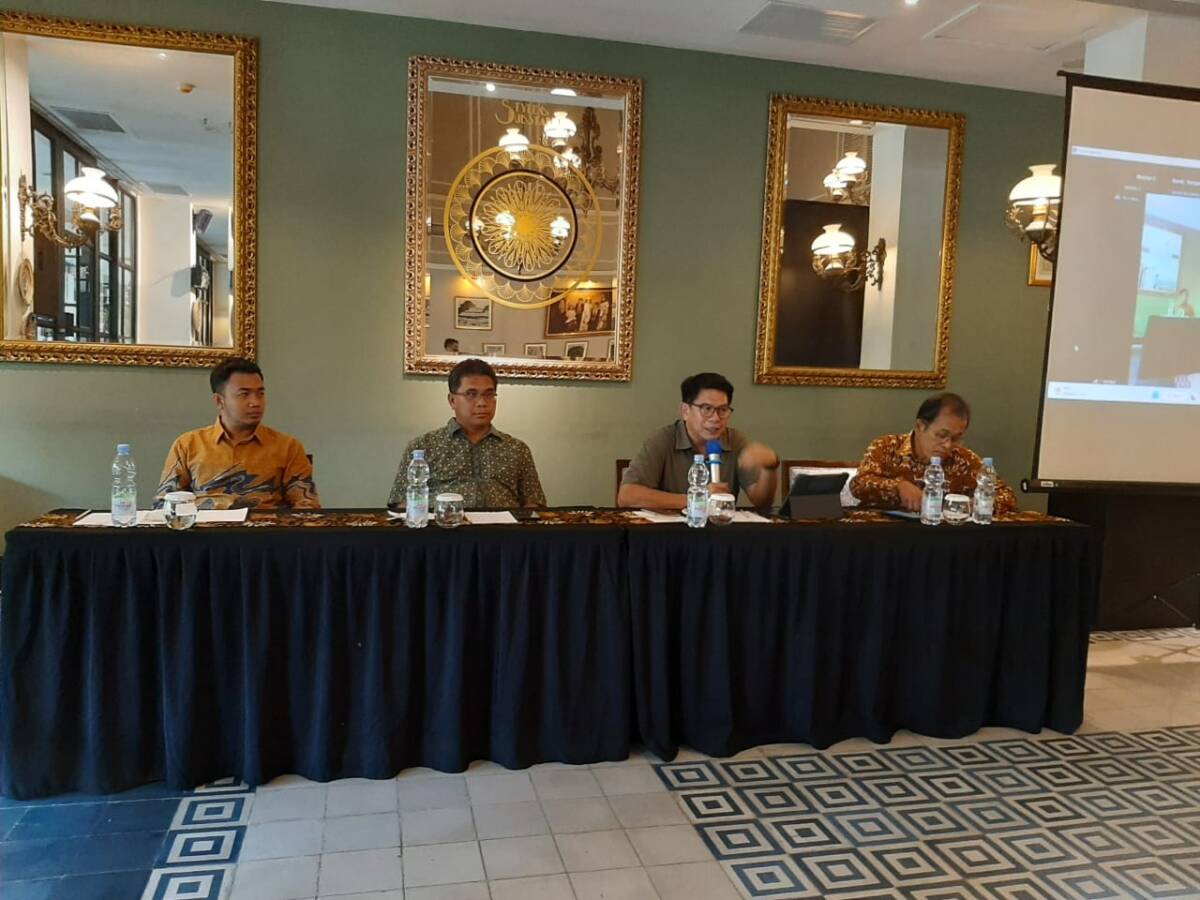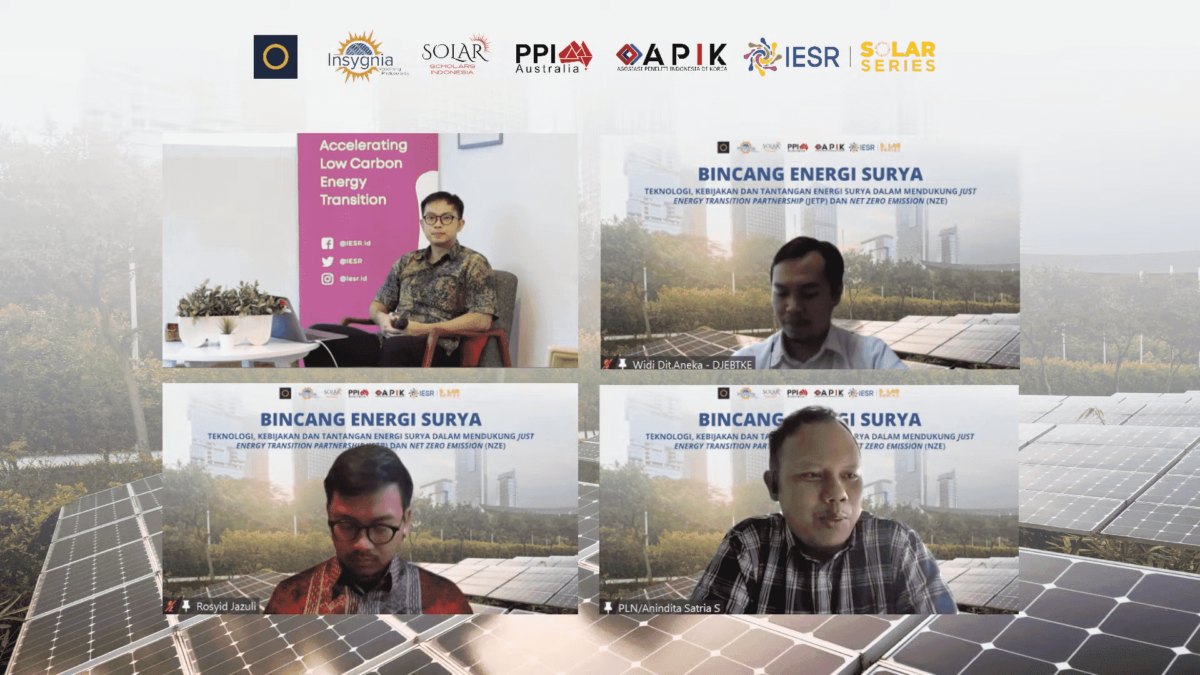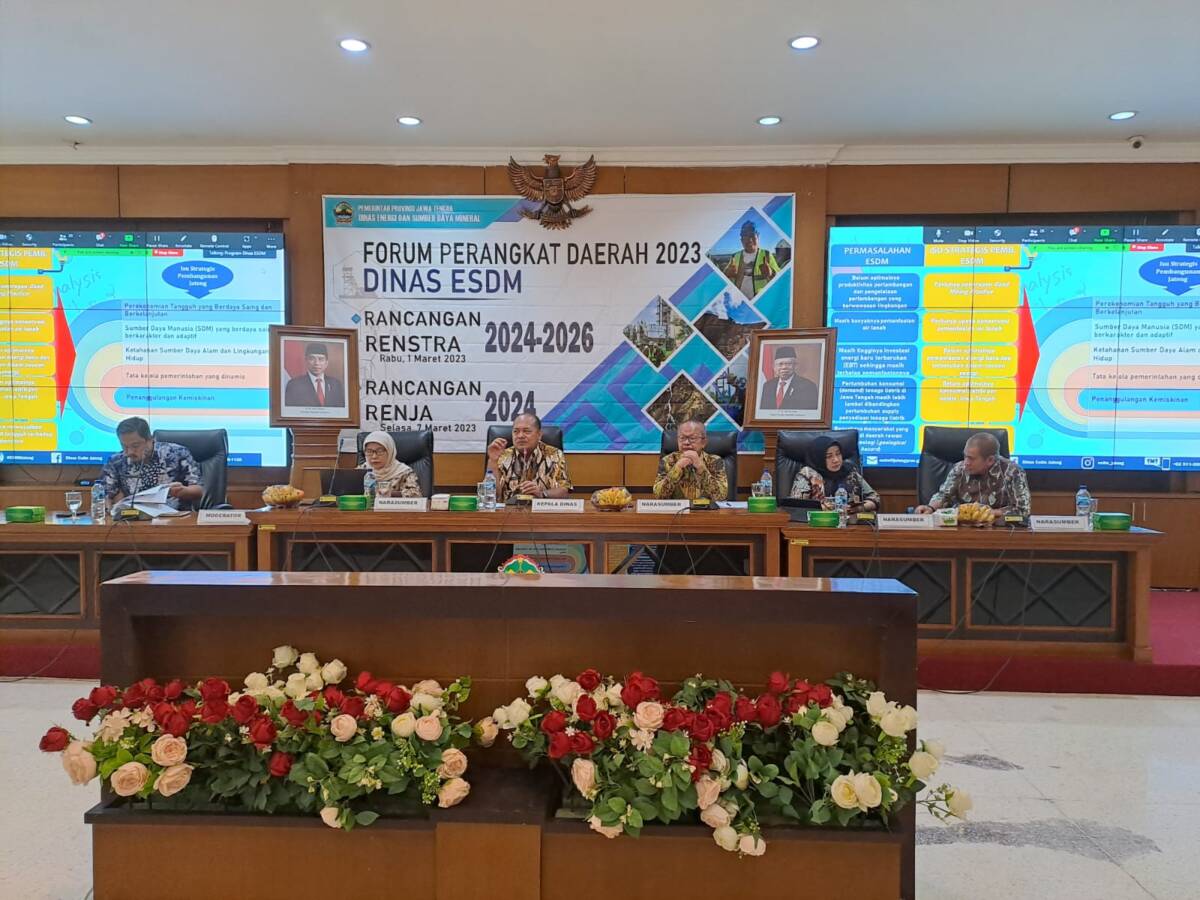The government and Commission VII of the House of Representatives agreed to include nuclear as a new energy source in the New Energy and Renewable Energy Bill. Observers assess that the government should remove new energy provisions in the regulation and focus on renewable energy.
Read more on Kompas.
The Executive Director of the Institute for Essential Services Reform (IESR), Fabby Tumiwa, believes the government's decision was right not to increase electricity rates in the second quarter of 2023.
Read more on Medcom.
The Institute for Essential Services Reform (IESR) launched a report entitled Making Energy Transition Succeed: A 2023's Update on The Levelized Cost of Electricity and Levelized Cost of Storage in Indonesia and a web-based simulation tool accessible to the public to estimate energy generation costs for each technology generation and storage of energy.
Read more on Kontan.
The latest report by the Institute for Essential Service Reform (IESR) shows that renewable energy generation prices are getting cheaper and more competitive. For example, Hydroelectric Power Plant (PLTA) has the lowest average price of 4.1 cents/kWh.
Read more on Kata Data.
The development of renewable energy in Indonesia is still slow, even though the price of solar and wind power has tended to decrease in the last decade. Renewable energy is considered to need more support so that its development can be accelerated.
Read more on Kompas.

Jakarta, 21 March 2023 - As one of the countries that participated in ratifying the Paris agreement in 2015, Indonesia is committed to reducing its greenhouse gas emissions. In 2022, ahead of the G20 Summit, Indonesia will renew its emission reduction commitment in the Enhanced NDC which targets Indonesia's own emission reduction of 31.89% in…
Executive Director of the Institute for Essential Services Reform (IESR), Fabby Tumiwa, said the Singapore Government's ambition to boost the NRE mix of up to 3 GW in its national electricity supply in 2035 opens opportunities for Indonesian energy developers to supply this need.
Read more on Kontan.
Executive Director of the Institute for Essential Services Reform (IESR), Fabby Tumiwa, explained that there is a possibility that the government will adjust the price of electricity, especially non-subsidized electricity, starting in April 2023. He estimates that the non-subsidized electricity tariff for the April-June 2023 period will likely decrease compared to the previous rate.
Read more…

Jakarta, 9 March 2023 - Solar energy has the potential to be developed massively in Indonesia. The Institute for Essential Services Reform in its report entitled "Beyond 207GW" states that the technical potential of solar energy in Indonesia reaches 20,000 GW. Unfortunately, the use of solar energy is still minimal. It is noted that the…

Semarang, 1 March 2023 - The Energy and Mineral Resources of Central Java Province involved the Institute for Essential Services Reform (IESR) as a participant in the Regional Forum for Drafting Strategic Plans Document for 2024-2026. This activity was held at the ESDM Office of Central Java Province, opened with remarks by the Head of…
The Executive Director of the Institute for Essential Services Reform (IESR), Fabby Tumiwa, said that the average investment for geothermal power plants is US$ 5-7 million per MW.
Read more on Kontan.

Jakarta, February 8, 2023 - The State Electricity Company ( PLN) is currently in the midst of a crisis of oversupply of electricity. Several factors cause this, including the pandemic and global recession. In addition, there is a 35 Gigawatt coal power plant megaproject that has been initiated since 2015 and operated at only…
